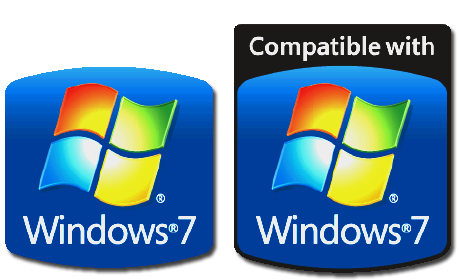Microsoft Extends Support Lifecycle for Windows 7 and Vista
Microsoft has quietly updated the support time frame for Windows Vista and Windows 7.
If you're a seasoned Windows user, you probably know how support for the OS works. That is, consumers can expect five years of support for each version while businesses are offered a further five years on top of that. However, Microsoft this past weekend confirmed a change to its support policy that will see all users upgraded to the 10-year support cycle previously only afforded to commercial users.
The change was first spotted by a ZDNet reader who pointed out that Micrsoft had revised its policy and a quick search on the company's Support Lifecycle page yields new results for both Windows Vista and Windows 7 that include Extended Support end dates for the consumer versions of both. ZDNet reached out to Microsoft for confirmation on the issue and Redmond responded that yes, it had made a change to its support policy. The company further detailed that users will need to be on the most current supported service pack in order to be eligible for Mainstream or Extended Support.
"Microsoft is updating the Support Lifecycle policy for Windows desktop operating systems, including Windows XP, Windows Vista and Windows 7," the company said in its statement.
"The update will provide a more consistent and predictable experience for customers using Microsoft Windows operating systems across OEM, consumer and business editions.
Microsoft still requires that customers have the most current Service Pack installed in order to continue to receive updates.
Through this update, customers who remain on the most current supported service pack will be eligible to receive both Mainstream and Extended Support, for a total of 10 years."
Prior to this change in policy, Mainstream Support for Windows Vista would have run out in April of this year. Support for all users has now been extended through to 2017. Windows 7 was originally looking at a Mainstream Support end-date of 2015. All users can now expect support to last through to 2020. Extended Support for Windows XP, which is still used by many businesses, is scheduled to end in 2014.
Get Tom's Hardware's best news and in-depth reviews, straight to your inbox.

Jane McEntegart is a writer, editor, and marketing communications professional with 17 years of experience in the technology industry. She has written about a wide range of technology topics, including smartphones, tablets, and game consoles. Her articles have been published in Tom's Guide, Tom's Hardware, MobileSyrup, and Edge Up.
-
kilo_17 Good. With the way Windows seems to be heading, I'm sticking with 7 for quite some time.Reply -
nikorr mobrocketlet vista die, its begging u to pull the plugLonger the support for the Vista, longer for the Win 7. Its needed.Reply -
DroKing Im still sticking w/ my XP till i get a new rig then Im gonna dual boot w/ XP n 7 nothing else!Reply -
kish20 Hopefully MS will not regret doing this. This makes it even less compelling for customers to migrate to the shiny new Win 8 later this year!Reply -
sporkimus Smart move as most users do not upgrade their OS within 5 years of getting it. Hell, if I didn't encourage my parents to upgrade their computer, they would probably still be using Windows 98.Reply -
amk-aka-Phantom kilo_17Good. With the way Windows seems to be heading, I'm sticking with 7 for quite some time.Reply
That's right; I'll keep Win7 just because its logo is so much prettier :) -
cookoy Without the extension, it doesn't make sense for Vista to be supported up to April this year while XP lives on to 2014. For me the OS dies with the hardware it's installed on.Reply
